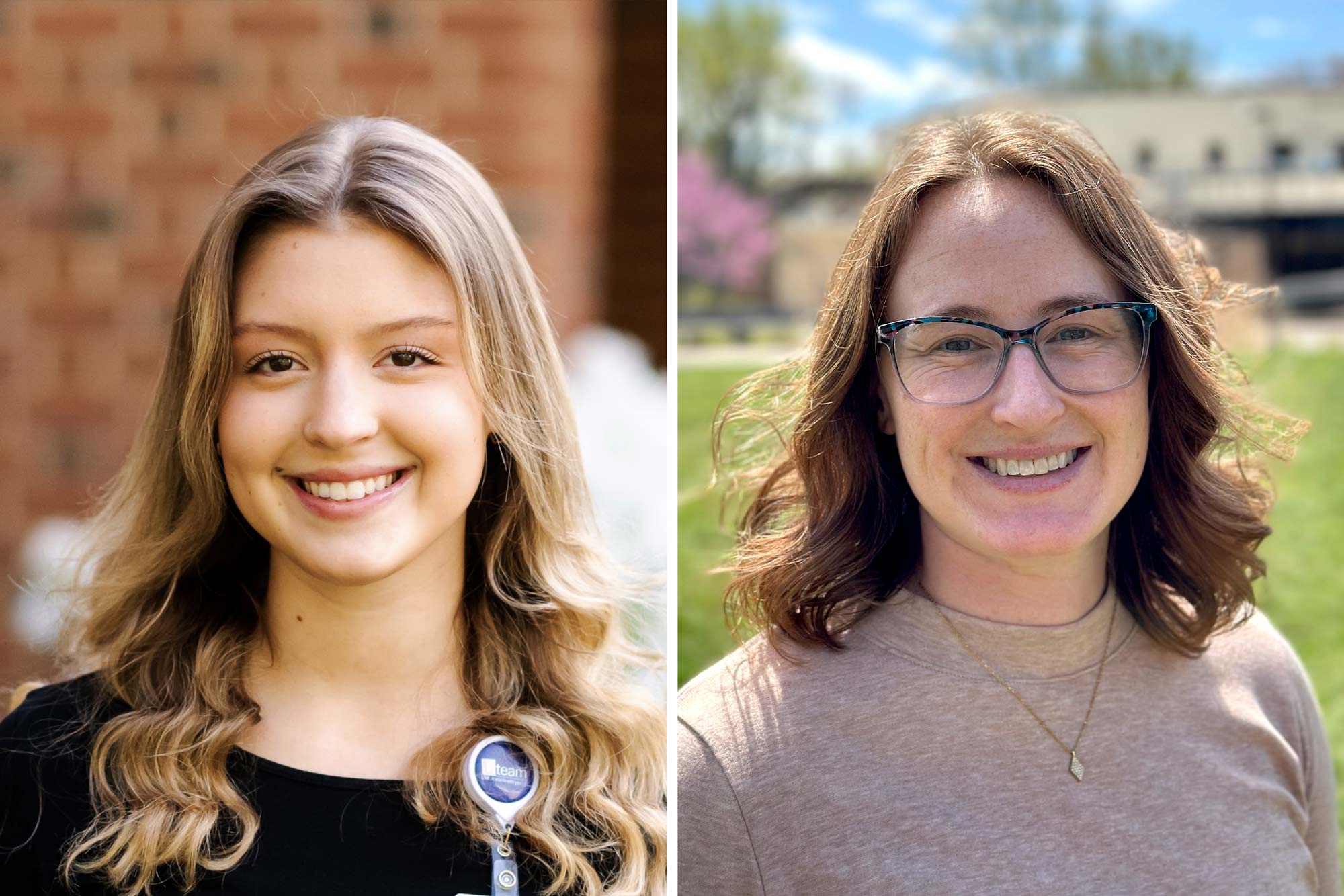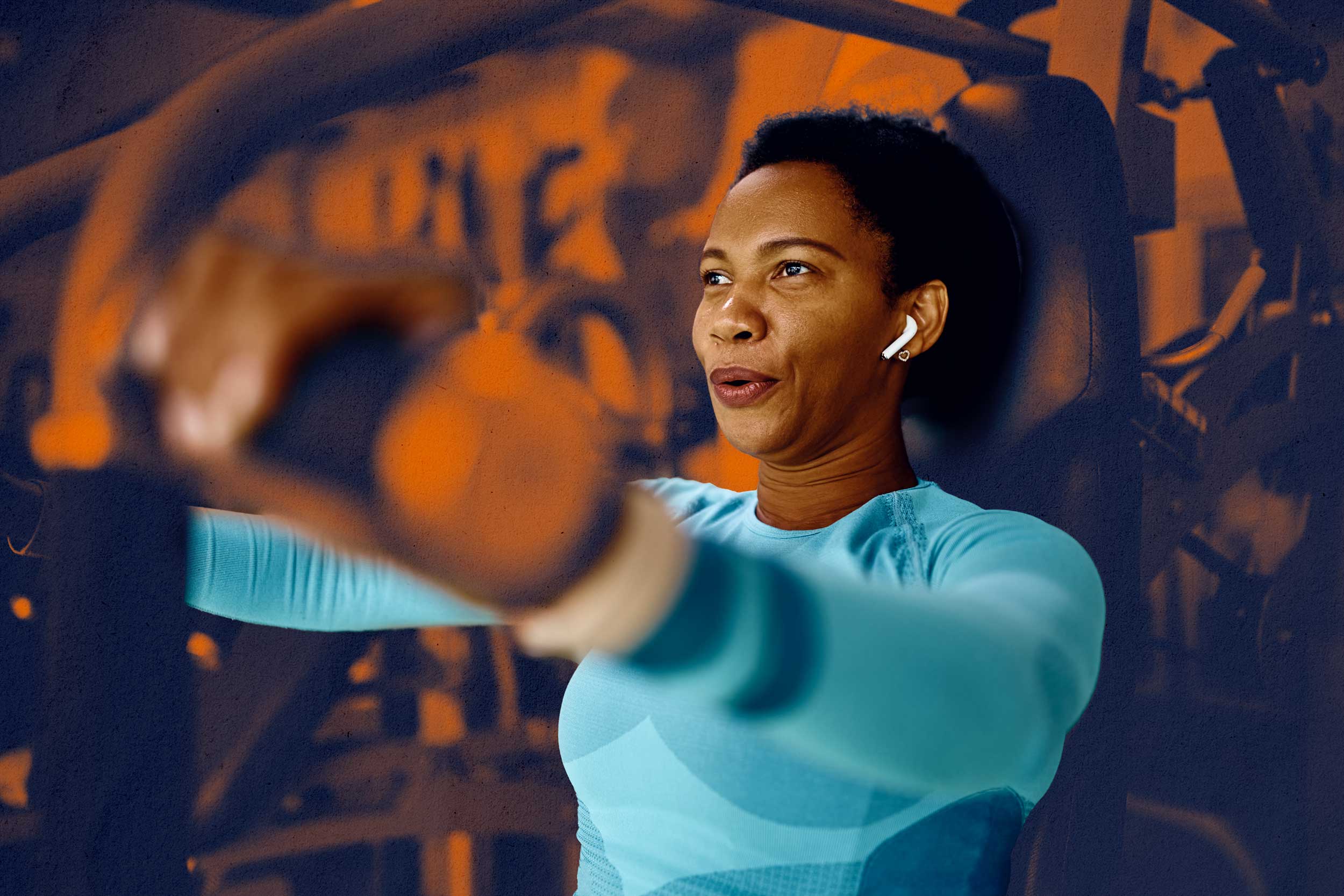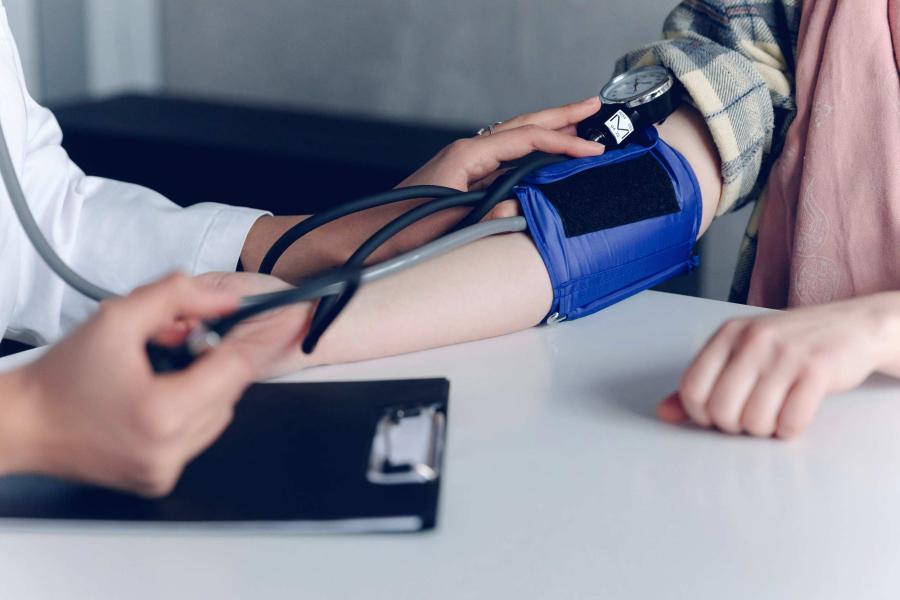Judging by the news articles and book releases, menopause is having a moment.
The stage of women’s health when reproductive ability declines often brings a litany of debilitating symptoms and increased health risks, including heart disease.
But for some women, perimenopause (the onset of menopause), menopause and the flood of information around them also bring confusion about what to do next.
“We do a lot of research around the menopause transition, which is a period of drastic change, and we have heard so many times from women that they just don’t know what to do,” said Macy Stahl, a doctoral student in kinesiology at the University of Virginia’s School of Education and Human Development.
Stahl is conducting research alongside UVA professor Jason Allen, a cardiovascular and exercise physiologist.

Macy Stahl, left, a doctoral student in kinesiology at UVA’s School of Education and Human Development, and Casey Derella, a postdoctoral research fellow, are leading the research. (Contributed photos)
Stahl and Casey Derella, a postdoctoral research fellow also working in Allen’s lab, realized their research and the scholars they have for resources could better help women understand how to support their health and wellness with exercise and nutrition.
“We saw a need, and we felt like we have the resources and the excitement to meet that need. So, we want to do what we can,” Stahl said.
With new funding from the Jefferson Trust Foundation, Stahl and Derella are using kinesiology department resources to provide women with specific data about their health and offer a detailed, individualized plan to improve it.
“We envisioned a protocol where we could take women through a series of different screening procedures and use their data to make a concrete exercise and nutrition prescription for them,” Stahl said.
With the grant, between 20 and 30 women of all ages can participate in a full day of activities, including a series of noninvasive health screenings for blood pressure, cholesterol, blood glucose and bone density.
They will also offer a gait analysis (to measure fall risk) and an exercise capacity test, drawing on the expertise of the kinesiology department’s diet and nutrition lab.
“We hope to cook lunch together,” Stahl said. “We plan to cook a heart-healthy meal or support participants in other ways, like tips for grocery shopping on a budget.”










